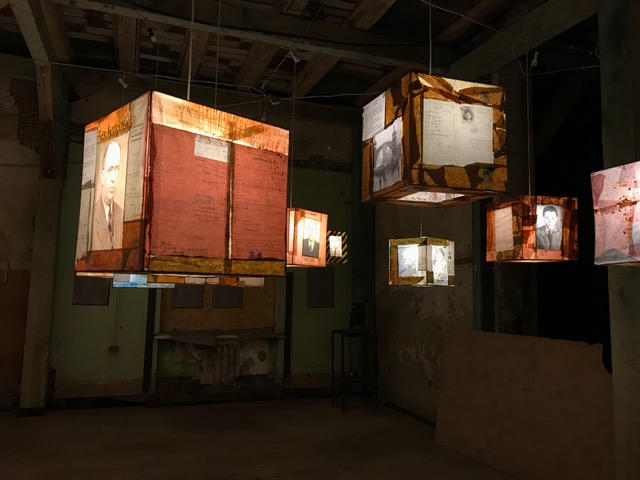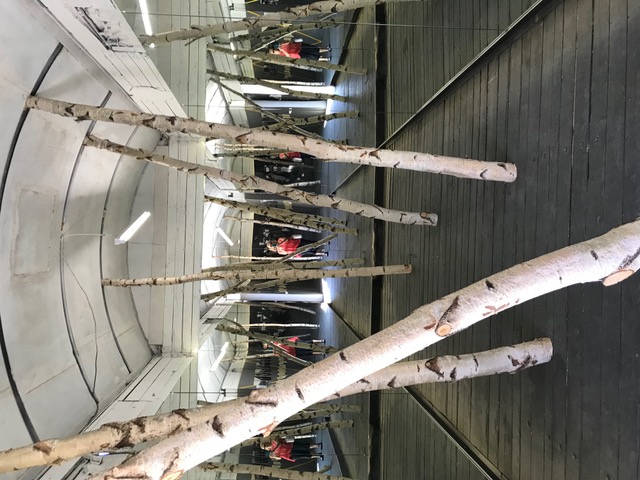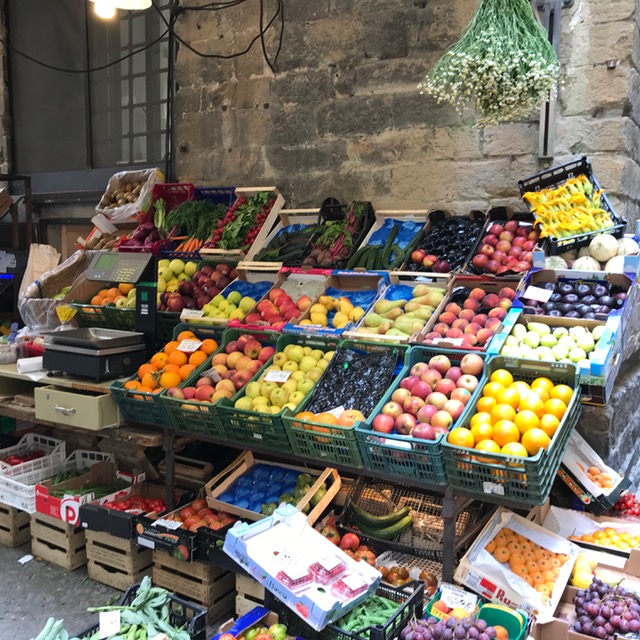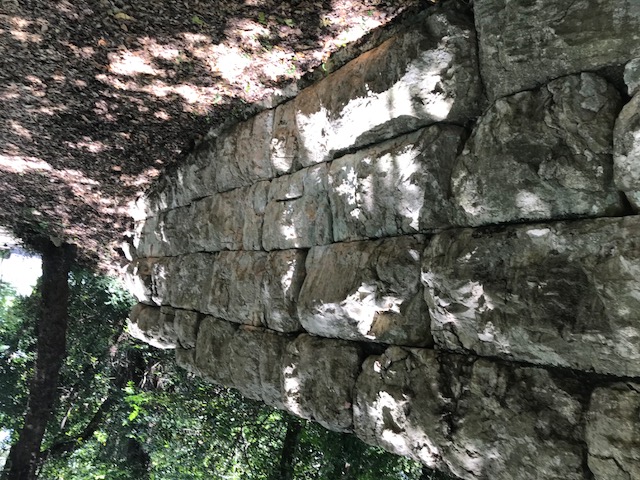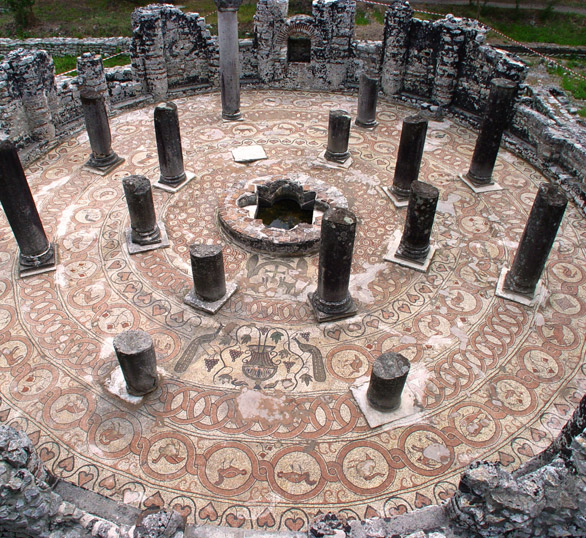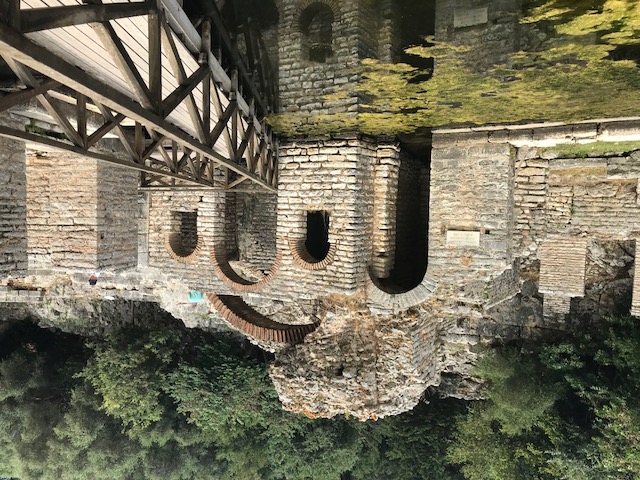it’s a difficult balance in this travel diary to keep it about travel when the burden of being American gets heavier with every news cycle.
I had a painful conversation yesterday over breakfast in Riga, sitting at the table next to an Australian. Very clearly a political conservative, he nevertheless expressed his disbelief that the person in the White House now is the American President. He said he had soured on the US to the extent that he didn’t want to go there and be among people who had let this happen to the world. He wondered if Australia could even count on the US to honor its commitments to it. Australia! The country most like us in many respects. There is so much fear, from Australia to Europe and beyond, because the impossible seems highly possible, now that the official American position, as defined by the president, is that enemies are terrific folks and allies are ripoff artists and must be put in their place.
People tell me how lucky I am not to be home in the middle of this toxic stew. Indeed I can shelter myself a little by not turning on the television and limiting myself to the email headlines and snippets I get from several reliable news sources. But I feel a little guilty, as if I should be home in the middle of the battle for the soul of my country, for indeed that is what it has become.
How could the floor threaten to fall out so quickly from under more than two centuries of American democracy? Certainly it hasn’t been equally democratic for all, but the ability to make positive change has done a lot to improve things when the will of the people has been strong enough. Now it seems the will of the people is being manipulated towards a negativity so at odds with how I want to think of my country, with American “ideals” and “values” now being interpreted and vomited daily by individuals of such crassness and cynicism as to be both mind boggling and nauseating.
The founders of the United States took seriously every worry they had at the time. They feared losing the ability to arm themselves against threats, being forced to quarter foreign soldiers in their homes, and many other things they had experienced under British rule. There’s a bit of the bad boy/girlfriend syndrome at work here. We are keenly aware of qualities we will avoid in future relationships, but not experienced enough to be aware of what flaws to watch out for the next time.
We are in the middle of the worst bad date in our history. What the founders didn’t think to question was that all the checks and balances they put into the structure of government would work because people would act in good faith. People can disagree, and since people are often elected or laws enacted by the slimmest of margins, at any given time a lot of people will be unhappy. If we are one of the elected, we accept what we can and cannot do with our power. If we are in the minority, we work toward compromise, try to be constructive, and wait our turn.
That doesn’t apply anymore. We are in the middle of a coup moving at freight train speed to destroy democratic institutions, creating an autocracy so quickly there won’t be time to follow the rules and vote the hustlers and swindlers out.
All with hand-over-heart verbal salad about patriotism. A day later at breakfast in Riga, I started thinking about the great conundrum of liberty that underpins all American history. The first colonists wanted freedom of religion, but only for themselves. The rebellious history of American individualism took root there, but the toxic downside was soon apparent, with persecutions of anyone whose individuality did not suit community norms.
We have a history that celebrates liberty and enshrines it in our constitution, but doesn’t really have a history of meaning it, except for certain people some of the time. How else could one possibly assert freedom of speech to spew ideologies of racial, ethnic and religious cleansing antithetical to the rights of others? How could one assert the right to own an automatic weapon intended to kill people who have a right to life? How could one assert there shouldn’t be regulations protecting small investors from predatory lending, or insider trading? How could one say that absolute equality of treatment is fairer than a concept of equity that takes into account past and present disadvantage and discrimination?
So now the fuse is lit. The rich see openings to get even richer. The “base” is aroar with outrage about how our country is supposed to be Christian. Didn’t the Pilgrims come over to make that happen? Well yes, but they didn’t write the constitution. People fearful of religious myopia did. And don’t forget how we’re supposed to be (and some think even obligated to be) personally armed. And afraid. Always afraid. Afraid someone else’s liberty will make us uncomfortable.
in Plato’s Republic one of Socrates’ critics claims that we aren’t really moral deep down at all. We are willing to follow a law against stealing, for example, not because stealing is wrong, but because we don’t want to be stolen from. We accept laws limiting our own ability to be selfish and unfair only because we don’t want others to behave selfishly and unfairly toward us. It’s an interesting concept, and one with which Socrates violently disagreed. Morality, he argued, was innate. We simply knew right from wrong and were obligated as human beings to choose right.
Well, Socrates, it seems all bets are off in the America I see coming. Immorality and contempt for the law are working so well at the top. Things will be great when the rest of us just fall in line with what works so well for the elite. It’s so simple. And so, so gut wrenchingly wrong.

